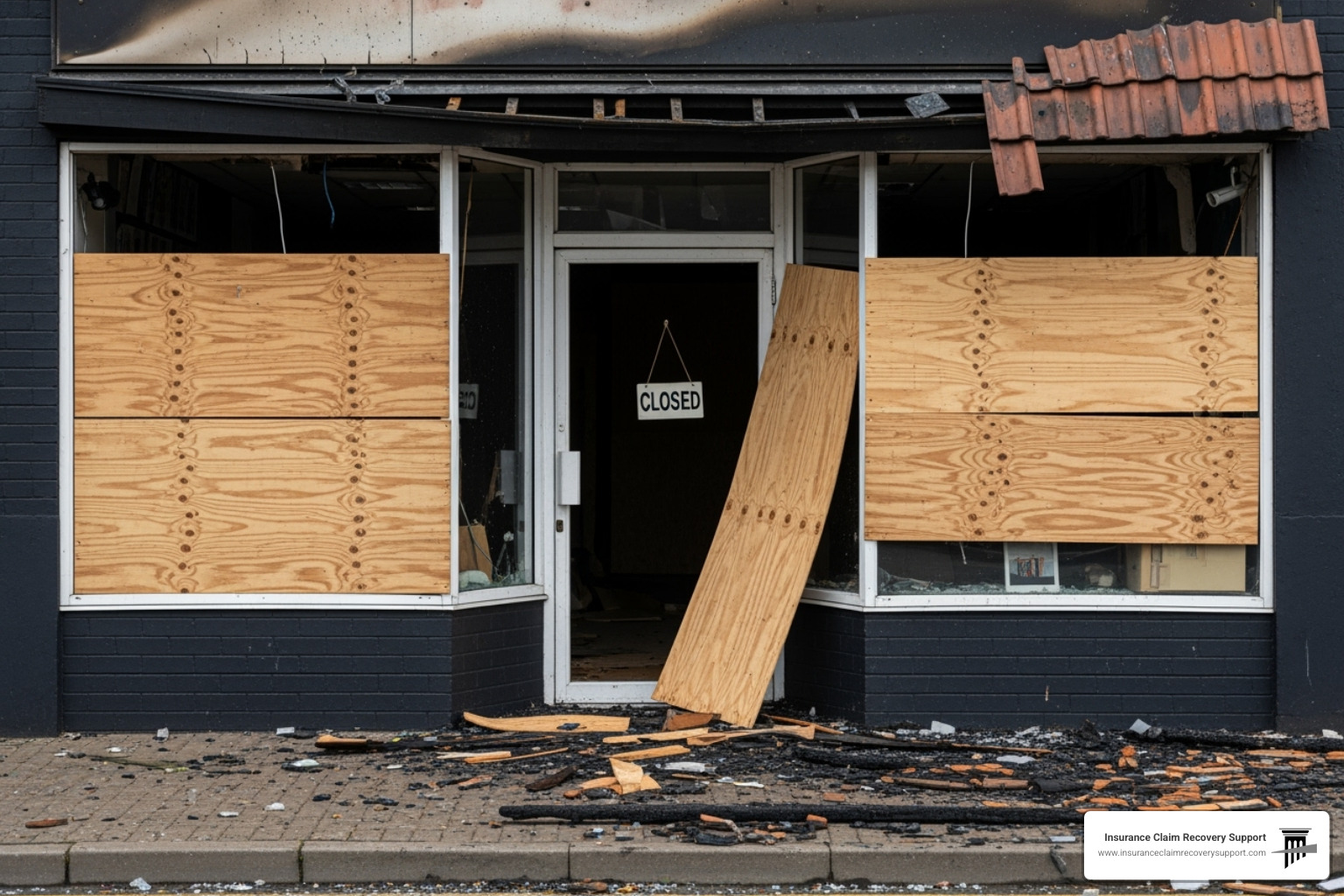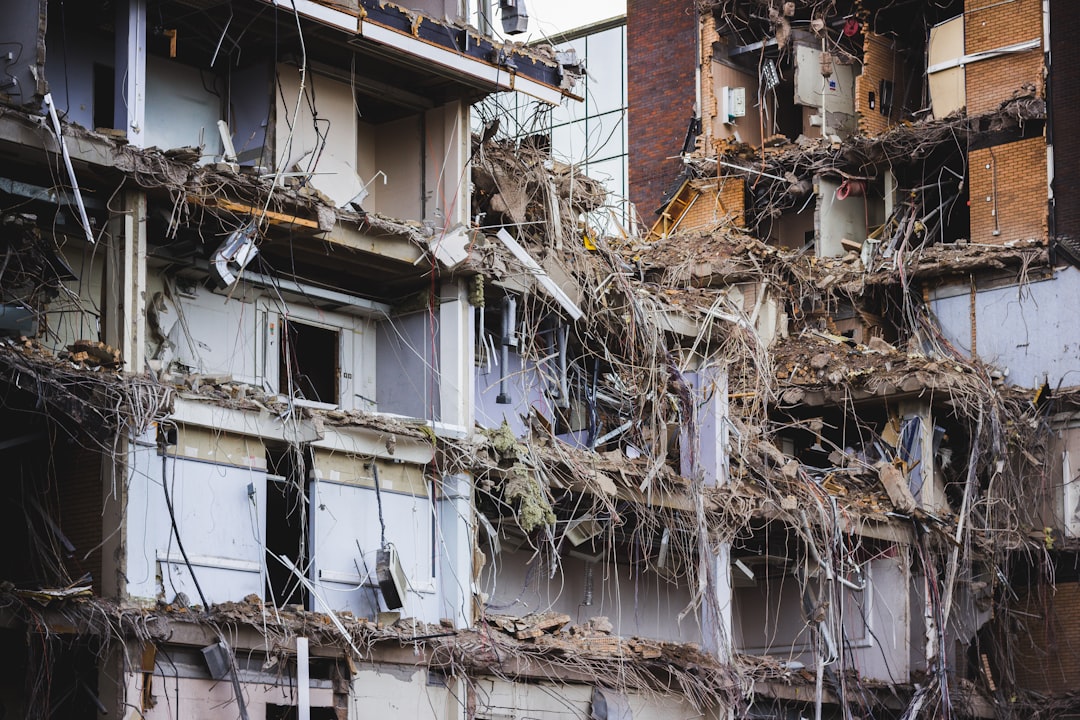Flood damage claims Houston is a topic of crucial importance for property owners in one of the most flood-prone metropolitan areas in the United States. Whether you’re a homeowner, a business owner, or a member of an association managing communal property, understanding how to file and maximize your flood insurance claims is essential for recovering quickly from disasters like Hurricane Harvey, which devastated Houston in 2017.
- Steps to file a claim:
- Document all damage immediately with photos and videos.
- Contact your insurance provider to report the loss.
- Complete claims forms and provide any required documentation.
- Arrange for an assessment by a claims adjuster.
- Review the settlement offer, and be prepared to negotiate.
As Scott Friedson, a seasoned expert in flood damage claims Houston, I have helped countless policyholders steer the complexities of claims, ensuring they receive fair and prompt settlements. My experience in the field has shown that preparation and proactive management of your claim can make a significant difference.
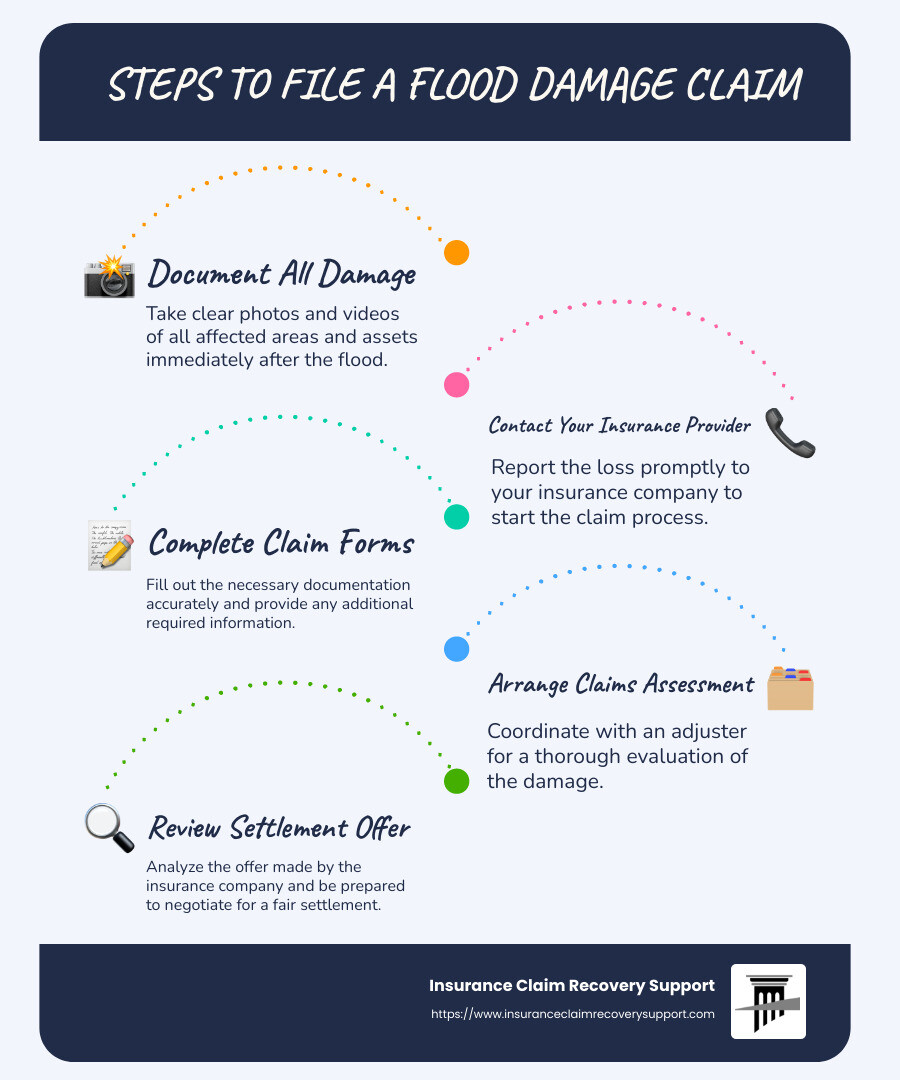
Understanding Flood Damage in Houston
Flooding in Houston is a serious concern. The city has seen its share of devastating floods, with Hurricane Harvey in 2017 serving as a stark reminder of nature’s power. This hurricane alone caused unprecedented damage, with some estimates comparing its impact to that of Hurricane Katrina.
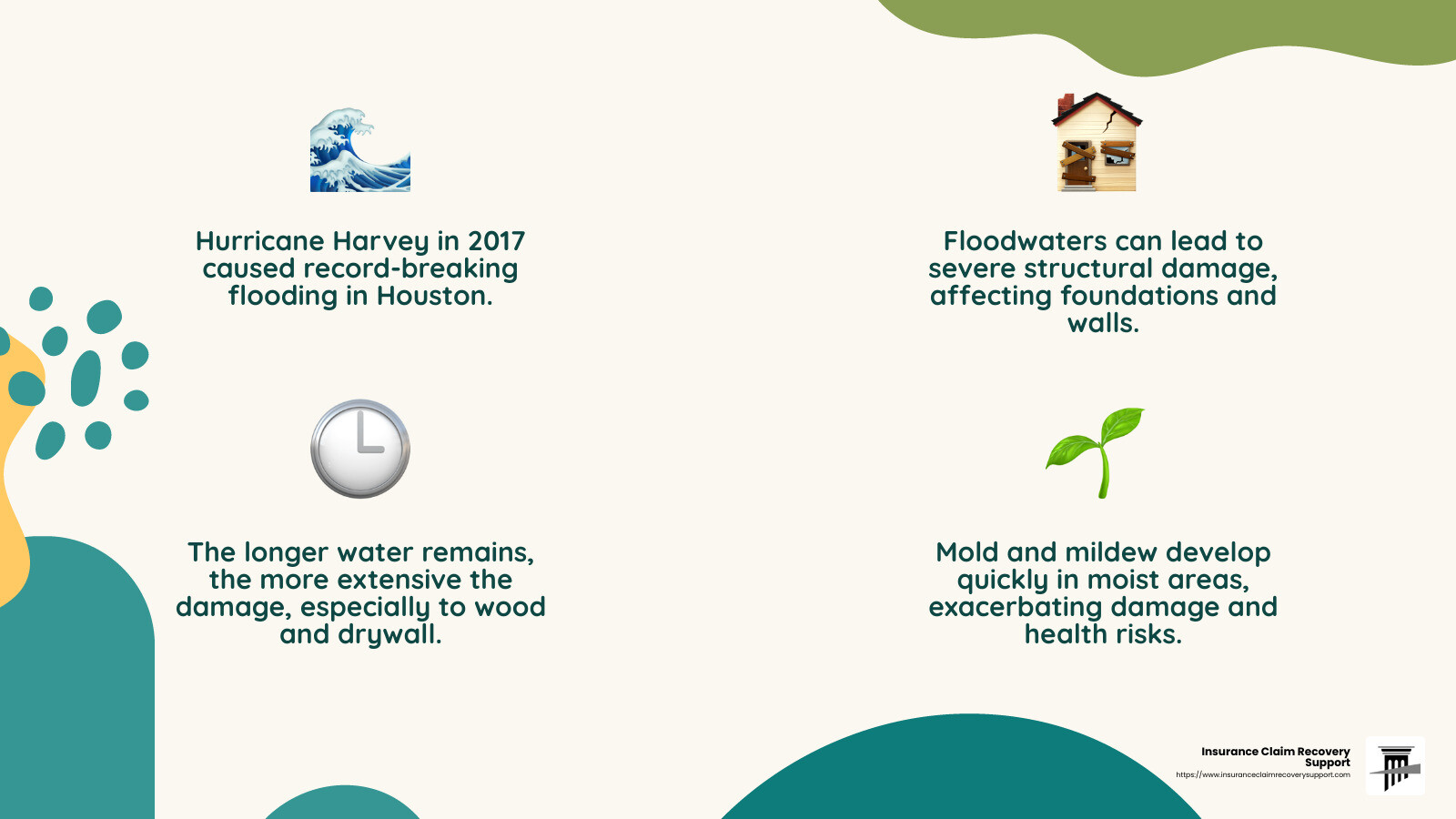
Structural Damage
Floodwaters can wreak havoc on a home’s structure. The sheer force of water can compromise foundations, walls, and siding. The longer water sits, the worse the damage becomes, especially to materials like wood and drywall. Waterlogged wood can lead to long-term structural issues if not properly dried and treated.
Mold and Mildew
Mold is another major issue following a flood. It can start growing within just 24 to 48 hours after water recedes. Mold spores can spread quickly, affecting air quality and posing health risks. Homes in Houston, especially those hit by Hurricane Harvey, have experienced significant mold problems. Proper cleanup and drying are crucial to prevent further damage and health issues.
Plumbing and Electrical Systems
Floodwaters in Houston often contain debris and sediment, which can clog plumbing systems and damage pipes. If floodwaters rise above drainage systems, they can cause severe plumbing issues.
Electrical systems are also at risk. Floodwater is a good conductor of electricity due to dissolved ions, making electrical systems dangerous and often unusable after a flood. Appliances, HVAC systems, and electrical panels exposed to water need careful inspection and often replacement.
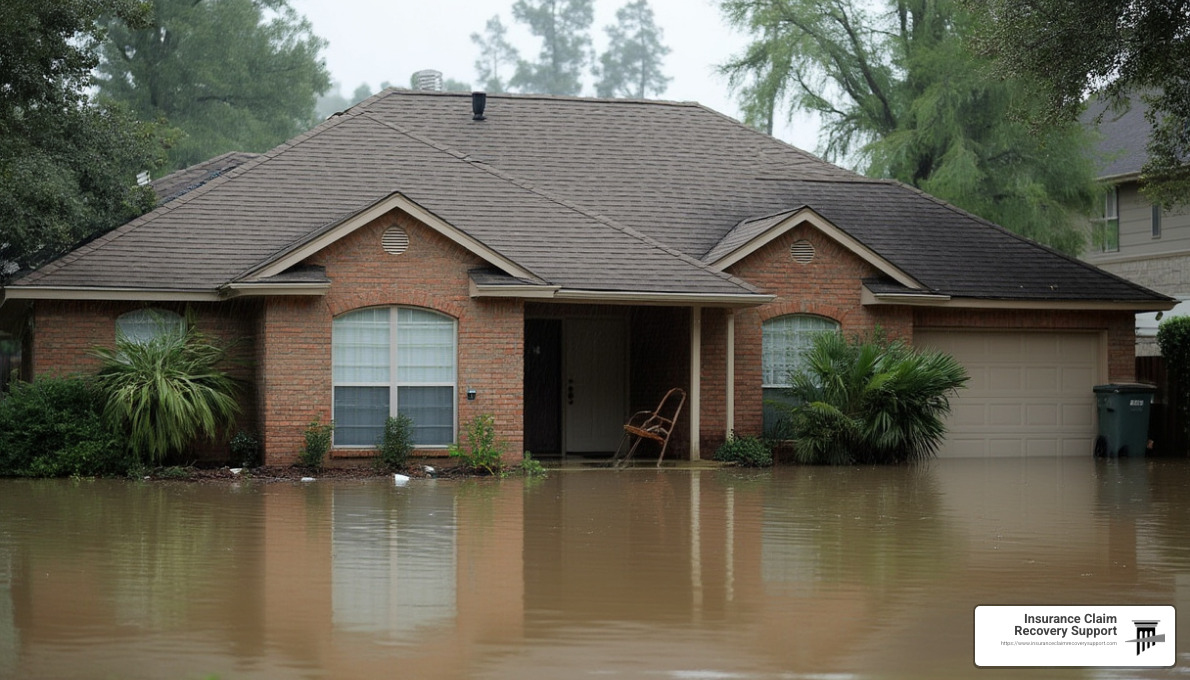
Understanding these aspects of flood damage is crucial for anyone living in Houston. Knowing what to expect and how to handle the aftermath can help homeowners and businesses recover more effectively.
Filing Flood Damage Claims in Houston
When it comes to flood damage claims in Houston, understanding your insurance policy is crucial. Flooding can cause extensive damage, and knowing what your policy covers can make a big difference in your recovery process.
Insurance Policies and Flood Coverage
Most standard homeowner’s insurance policies do not cover flood damage. For this, you’ll need a separate policy through the National Flood Insurance Program (NFIP), managed by FEMA. This program is essential for homeowners in flood-prone areas like Houston. However, even with NFIP coverage, navigating the claims process can be challenging.
National Flood Insurance Program (NFIP)
The NFIP provides coverage for both the structure of your home and its contents. However, there are limits to what it covers. For example, the NFIP typically covers the building itself and essential systems like plumbing and electrical. It also covers certain personal belongings, but not all items are included, and there are coverage limits.
Filing a Claim
When filing a flood damage claim in Houston, start by contacting your insurance company as soon as possible. They will guide you through the process and assign an adjuster to assess the damage. Documentation is key: take photos and videos of all affected areas and keep a detailed inventory of damaged items. This will support your claim and help you get the compensation you deserve.
FEMA’s Role
FEMA plays a critical role in managing the NFIP and providing additional assistance. If your flood insurance doesn’t cover all your losses, FEMA may offer aid for uninsured expenses. This can include temporary housing and other immediate needs. However, FEMA assistance is not a substitute for flood insurance, and it often doesn’t cover all damages.
In Houston, filing a flood damage claim can feel overwhelming, especially after a major event like Hurricane Harvey. By understanding your policy and the claims process, you can better steer the aftermath and work towards recovery.
Maximizing Your Flood Insurance Claim
When dealing with flood damage claims in Houston, getting the most out of your claim is crucial. Here are some steps to ensure you maximize your settlement:
Document Losses Thoroughly
Start by documenting everything. Take clear photos and videos of all the damage. Make a list of damaged items, including their original cost and estimated replacement value. This evidence is crucial for supporting your claim and can prevent disputes with your insurance company later.
Verify Adjuster Identity
When an adjuster arrives to assess the damage, verify their identity. They should have proper identification and credentials. Some policyholders have reported issues with fraudulent adjusters, especially after large-scale disasters. Ensuring you’re dealing with a legitimate professional can save you time and potential headaches.
Efficient Claim Processing
Speed is important in claim processing. Submit your documentation promptly and follow up regularly with your insurance company. Under the Texas Insurance Code, companies must acknowledge your claim within 15 days and decide on it within 15 business days, though they can request a 45-day extension. Keeping track of these deadlines can help you ensure timely processing.
Leverage Public Adjusters
Consider hiring a public adjuster. Unlike insurance company adjusters, public adjusters work for you, not the insurer. They can help you document damages more accurately and negotiate a better settlement. According to research, policyholders using public adjusters often see significantly higher payouts. This professional help can be invaluable, especially in complex cases or when dealing with significant losses.
By taking these steps, you can increase your chances of receiving a fair and comprehensive settlement, helping you recover more effectively from the flood damage.
Common Challenges in Flood Damage Claims
Filing flood damage claims in Houston can be a daunting process. Homeowners often face several obstacles that can delay or reduce their settlements.
Claim Denials
Insurance companies may deny flood claims for various reasons. Sometimes, they argue that the damage doesn’t meet the policy’s criteria or that it was pre-existing. For instance, if your policy has a deductible and the damage costs less, your claim might be denied.
Tip: If your claim is denied, don’t panic. Review the denial letter carefully to understand the reasons. It might be a simple paperwork issue or a misunderstanding. Gather additional evidence and consider filing an appeal. Many homeowners have successfully overturned denials by providing more documentation or clarification.
Underpayments
Even if your claim is approved, you might face underpayment issues. This happens when the insurance company offers less than what you believe the repairs will cost. They might use outdated price lists or excessive depreciation to justify lower payouts.
Tip: To avoid underpayment, document everything carefully. Take photos, videos, and keep a detailed inventory of damaged items. Hiring a professional to assess the damage can also help. Policyholders who get independent assessments often receive higher settlements.
Insurance Company Tactics
Insurance companies might use various tactics to delay or minimize payouts. They could request unnecessary documentation or slow down the process, hoping you’ll accept a lower settlement.
Tip: Be persistent. Follow up regularly with your insurer and keep detailed records of all communications. Knowing your rights and the deadlines set by the Texas Insurance Code can help you push for timely processing.
Policyholder Rights
Understanding your rights as a policyholder is crucial. Under Texas law, insurance companies must handle claims in a “timely and prompt manner.” They have specific deadlines to acknowledge, investigate, and decide on claims.
Tip: Familiarize yourself with these deadlines and hold your insurer accountable. If you feel overwhelmed, consider hiring a public adjuster or legal assistance. These professionals can help you steer the system and ensure you receive a fair settlement.
By being proactive and informed, you can overcome these challenges and secure the compensation you deserve for your flood damage claims.
Frequently Asked Questions about Flood Damage Claims
How do I get reimbursed for flood damage?
Getting reimbursed for flood damage in Houston starts with filing a flood damage claim. Here’s a simple breakdown:
-
Document Everything: Take clear photos and videos of all the damage. Make a list of damaged items, noting their condition and value.
-
File Your Claim Promptly: Contact your insurance company as soon as possible. Provide them with all the documentation you’ve gathered.
-
Adjuster Assessment: An adjuster will visit your property to assess the damage. Make sure to verify their identity. If you feel their estimate is too low, consider getting a second opinion from a public adjuster.
-
Stay Persistent: Keep in touch with your insurance company. Follow up regularly to ensure your claim is processed quickly.
Keeping detailed records of all communications with your insurer can help if disputes arise.
Does FEMA pay for flood damage?
FEMA provides assistance for flood damage, but it’s not a replacement for insurance. Here’s how it works:
-
FEMA Assistance: If you don’t have flood insurance, FEMA can offer temporary housing and some financial aid for essential repairs. However, this aid is usually limited and may not cover all your losses.
-
Uninsured Expenses: FEMA can help with uninsured expenses like temporary housing. But again, this is often a stopgap measure, not a full solution.
-
Apply for Assistance: You can apply for FEMA assistance online or by phone. Be prepared to provide documentation of your losses and any insurance claims you’ve filed.
How do I get the most out of my flood claim?
Maximizing your flood insurance claim involves careful preparation and persistence:
-
Verify Adjuster Credentials: Ensure the adjuster is legitimate and working for your insurer. A public adjuster can be hired independently to advocate for you.
-
Comprehensive Documentation: Provide detailed evidence of all damages and repairs needed. This includes photos, videos, and receipts for any emergency repairs or temporary housing.
-
Legal Assistance: If you’re struggling with your claim, consider consulting a lawyer who specializes in insurance claims. They can help you understand your rights and negotiate a better settlement.
By following these steps, you can improve your chances of receiving fair compensation for your flood damage.
Conclusion
Navigating flood damage claims in Houston can be daunting, but you don’t have to do it alone. At Insurance Claim Recovery Support, we are dedicated to advocating for policyholders like you. Our mission is to ensure you receive the maximum settlement you deserve.
We understand the complexities of flood insurance claims and the challenges you face, from policy intricacies to dealing with adjusters. That’s why our team is committed to guiding you through every step of the process. We work tirelessly to document your losses accurately, negotiate with your insurer, and handle any disputes that arise.
Our expertise in policyholder advocacy means we know what it takes to secure the best possible outcome for your claim. Whether it’s a minor repair or a significant rebuild, we’re here to help you restore your property and regain peace of mind.
If you’re struggling with a flood damage claim, don’t hesitate to reach out. Let us handle the complexities while you focus on rebuilding your life. For more information on how we can assist with multi-family property claims, visit our service page.
With Insurance Claim Recovery Support by your side, you’re not just a policyholder—you’re part of our community, and we’re here to fight for you.


